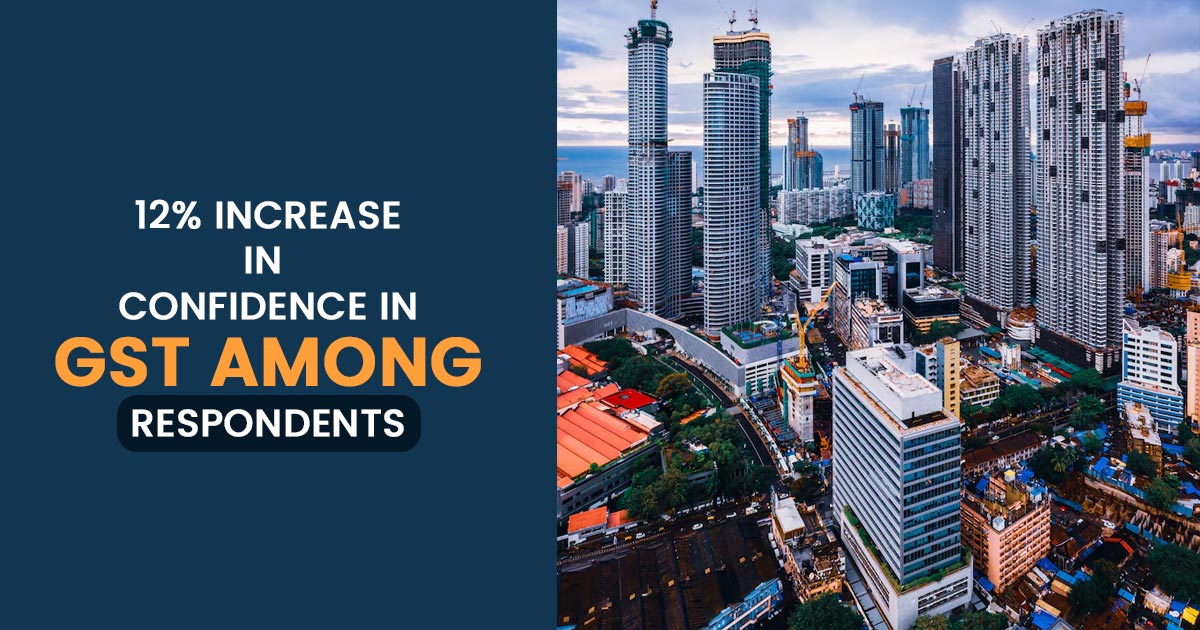
In a survey, it was discovered that Indian Inc.’s confidence in Goods & Services Tax (GST) has increased to 84 per cent in 2024 as against 72 per cent in 2023. The survey took place when the new indirect tax regime was set to complete 7 years ago.
This positive opinion is reflective of supply chain efficiencies, tax advantages, technology, and continued stakeholder engagement on GST policy matters. The survey exposes that it is time to push for additional reforms to make the regime more robust, dynamic, and responsive to taxpayers’ requirements.
Goods & Services Tax 2.0 must analyze the feasibility of expanding the tax base of the GST regime, rationalizing tax rates, removing ITC restrictions, further export liberalization for services, unlocking working capital, and addressing problems of operational areas of compliance.
In May, the investigation consisted of top executives in multiple industries via online platforms. The investigation consists of 40 questions surrounding distinct components of GST in multiple-choice and single-choice formats.
From sectors, comprising consumer, energy, resources and industrials, life sciences and healthcare, technology, media and telecommunications, banking and other financial services, and government and public services, it has obtained 760 responses. The survey intends to assess the industry viewpoints on GST’s influence and statutory effectiveness in improving business procedures and compliance.
The investigation shows the areas where more reforms are needed: rationalizing tax rates, offering an effective dispute resolution process, removing credit restrictions, adopting faceless assessments, liberalizing export rules, and implementing a compliance rating system. In the GST council meeting which shall be conducted on June 22, certain important recommendations are expected to be pivotal discussion points.
According to the survey, 88% of top C-suite leaders have identified areas of challenge, such as audits and assessments, highlighting the need for ongoing simplification, technology integration, and capacity building.
There is also a significant demand for an influential dispute-resolution procedure, with 91% of leaders supporting the extension of audit timelines to address issues and enhance compliance.
Moreover, over 70% of respondents have called for aligning pre-deposit requirements for GST appeals with the pre-GST era norms to streamline the dispute resolution processes, as per the survey report.
The survey to assist the (MSME) sector, recommends facilitating GST registration via executing easier mechanisms like virtual verification and standard documentation across the nation. Such measures could assist the MSMEs to navigate the issue of compliance and contribute strongly to the economic growth of India.
78 per cent of the MSMEs have expressed a positive sentiment for implementation of GST this year, compared to 66 per cent in 2023. Nearly 70 per cent of respondents assume that the quarterly filing of returns for MSMEs is advantageous and enhances compliance. Particularly, 70% of MSMEs have cited supply chain efficiencies as a key positive area.
Read Also: Impact of GST on SMEs, MSMEs and Startups
The critical initiatives that the Ministry of Micro, Small & Medium Enterprises are seeking include paperless invoicing and uniform registration guidelines across India, which will greatly ease compliance obligations. The matching concept challenges of MSMEs were at 64% in 2023 and have now decreased to 37 per cent, exhibiting that this area is now easier.
Survey Done by Deloitte India